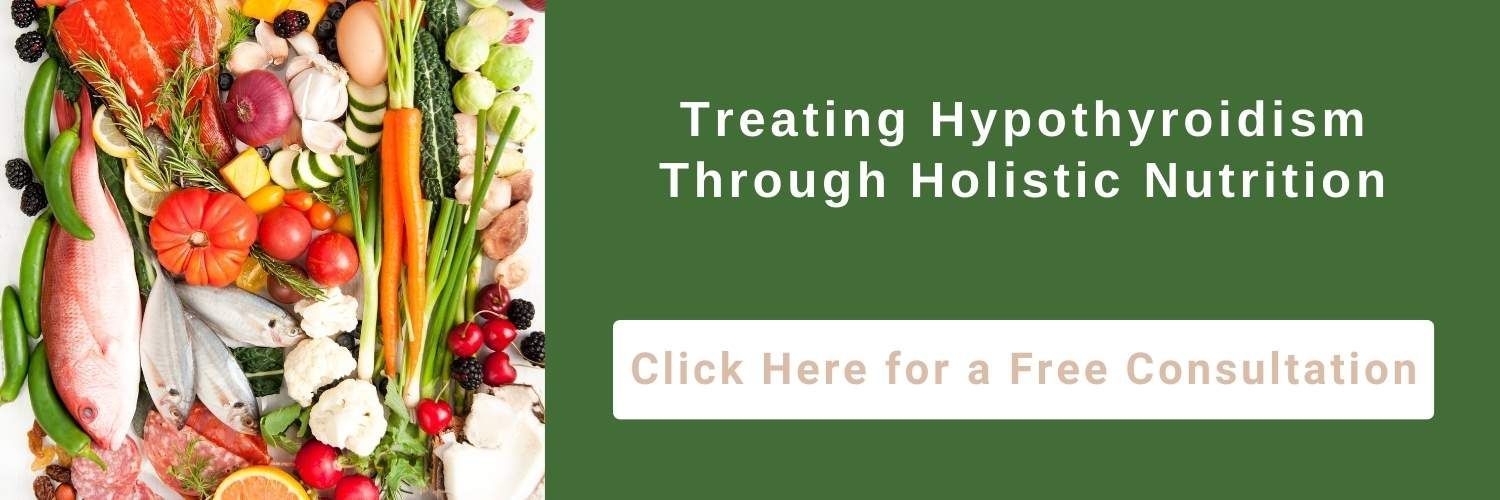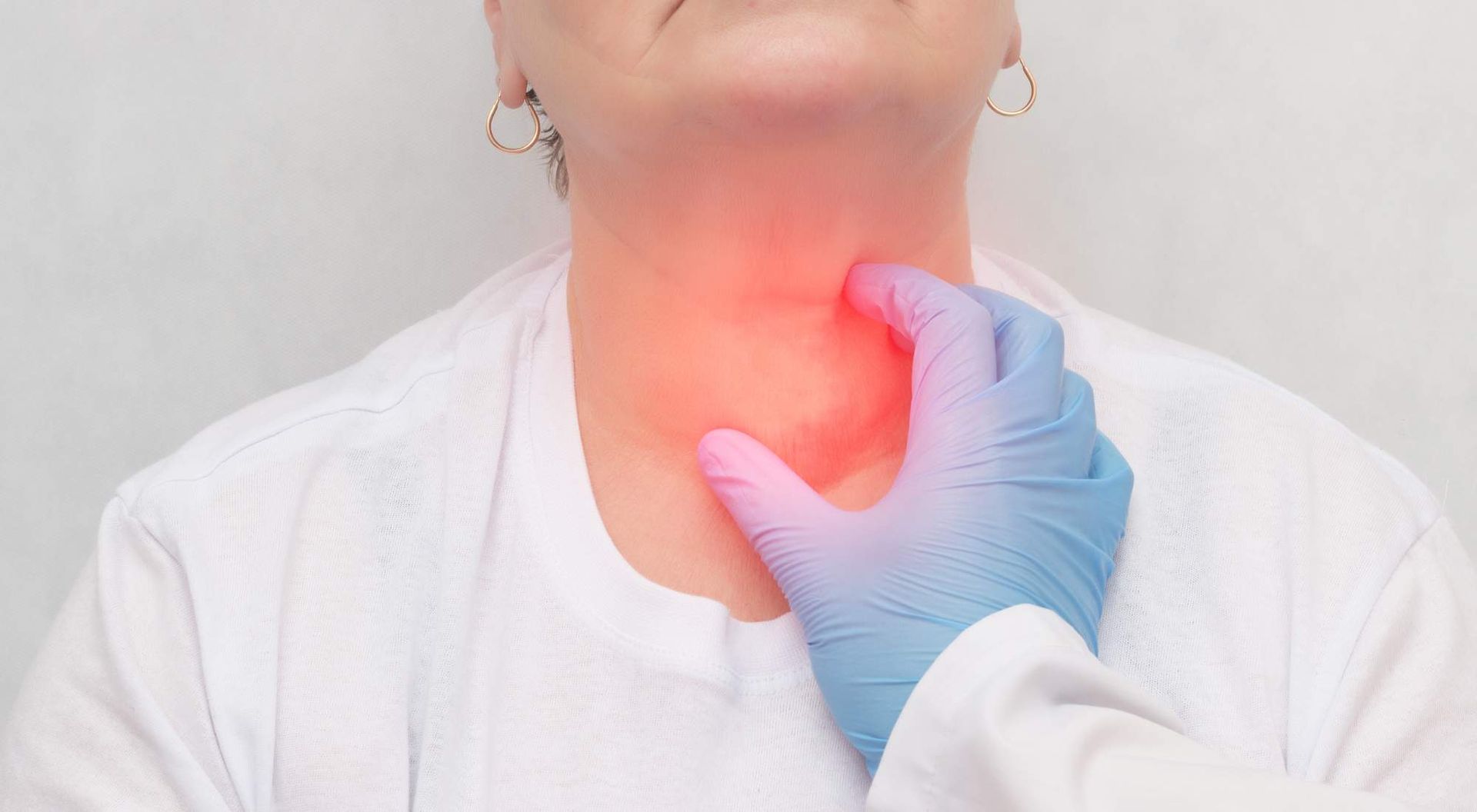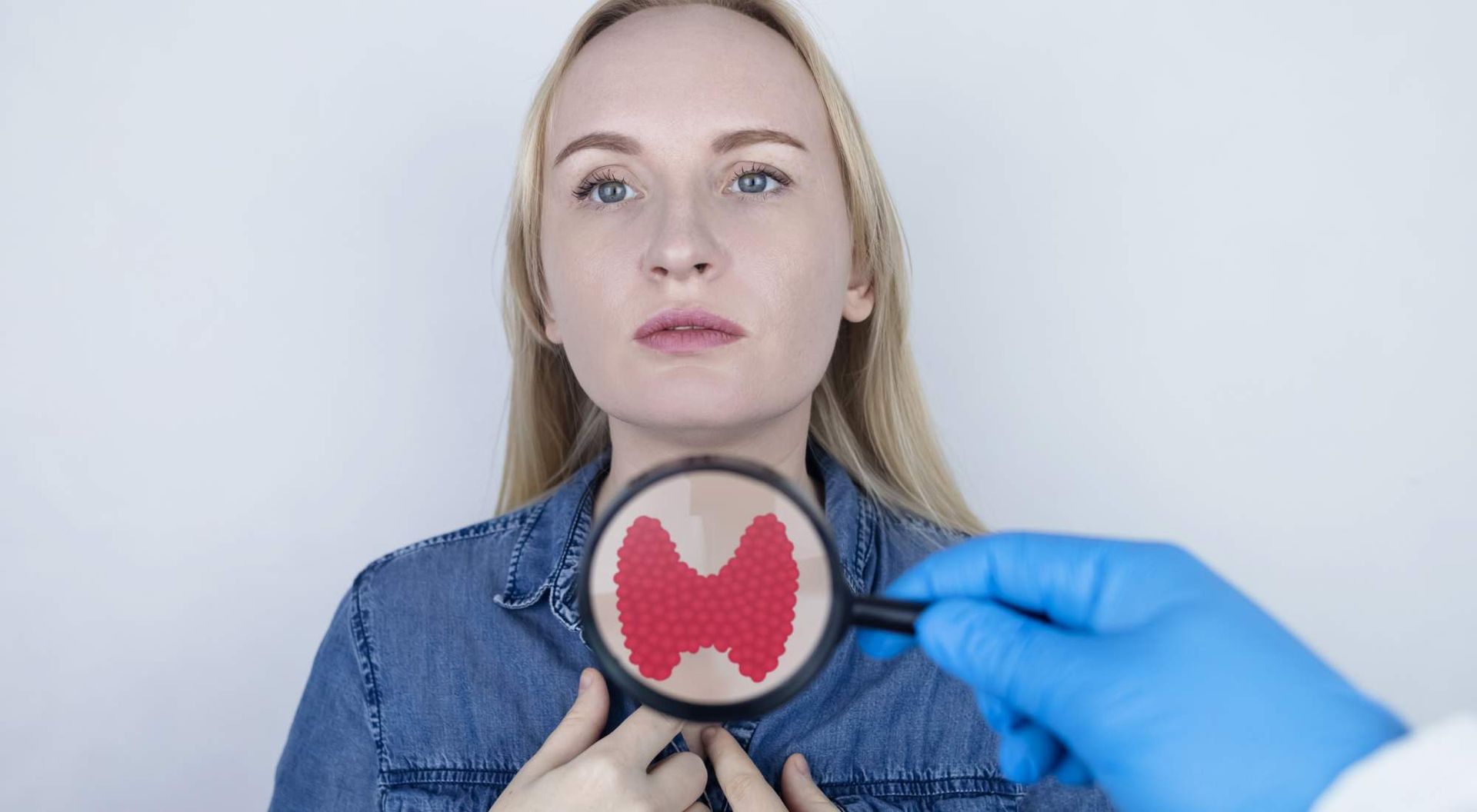How To Treat Hypothyroidism With Diet: Nutrition, Diet Tips, Meal Plan Advice, and More
"The content below is not intended to be a substitute for professional medical advice, diagnosis, or treatment. Always seek the advice of your physician or other qualified health provider with any questions you may have regarding a medical condition."
Do you feel hypothyroidism has zapped you of energy and affected you emotionally? Do you wish there was some way you could have more control over your physical and emotional health so that having hypothyroidism doesn’t drag you down?
There is something you can do. You can help to control hypothyroidism with diet. Let your food choices be a positive statement of how you are taking charge of your health and assisting your body to cope with its inability to make sufficient thyroid hormone.
HealthierU presents a nutritional and lifestyle guide for living with hypothyroidism. Learn about how nutrients help or hinder thyroid function and how you can make choices that optimize your thyroid’s health.
Table of Contents
Treating Hypothyroidism With Diet: How Diet Affects Thyroid Function
Although diet cannot completely cure hypothyroidism, it does play an instrumental role in thyroid health and health overall. Some foods may contribute to healthier thyroid function because they contain certain nutrients, namely iodine, selenium, and zinc.
Others contain nutrients that may aggravate thyroid health and hypothyroidism symptoms. If you avoid or limit these, along with any foods or supplements that hinder the absorption of thyroid replacement medicine, you are setting up your thyroid (and your body as a whole) for optimal function.
Contact HealthierU today to discuss how you can improve your diet to accommodate your unique nutritional circumstances
How To Help Hypothyroidism With Diet: Important Nutrients, Supportive Foods, and Foods To Avoid
A diet tailored for people with hypothyroidism should include the various nutrients that are critical for thyroid function. Below we have some recommendations for foods containing these nutrients and caveats concerning foods that should be avoided.
To treat hypothyroidism with diet, learn about these essential nutrients.
Essential Nutrients for Thyroid Function
Iodine
Iodine is an essential element of thyroid hormone production. Insufficient intake of iodine is implicated in many cases of hypothyroidism, but in developed countries like the United States, this is rarely a problem.
However, some people may have a higher risk of iodine deficiency because of certain conditions:
- Pregnancy: Since iodine needs increase to support the developing baby, it may be harder for the mother to consume enough iodine in her diet.
- Veganism, lactose intolerance, or food allergies: If iodine-containing foods are avoided, a deficiency is more likely.
- Borderline iodine status coupled with consumption of goitrogens: Goitrogens interfere with thyroid hormone production by inhibiting the thyroid’s uptake of iodine.
On the other hand,
too much iodine may exacerbate hypothyroidism symptoms or even cause hyperthyroidism. For this reason, it is important to consult with a medical professional before increasing your dietary intake or supplementing with iodine.
Selenium
Selenium is necessary for the function of enzymes that catalyze the production of thyroid hormones. Thus, selenium deficiency diminishes this production.
Selenium has also been
indicated in the reduction of thyroid antibodies that characterize Hashimoto’s thyroiditis, a leading cause of hypothyroidism. Supplementation or increased dietary intake of selenium may
improve thyroid function and quality of life of hypothyroid patients.
Vitamin B
Vitamin B12 deficiency is seen in almost
half of patients with hypothyroidism caused by Hashimoto’s. B12 has anti-inflammatory properties and thus helps minimize
inflammation in the thyroid associated with Hashimoto’s.
Tyrosine
The thyroid hormones T3 and T4 are produced by the iodination of the amino acid tyrosine. Tyrosine is obtained through diet and the conversion of phenylalanine. Supplementation has been
found to be helpful in tyrosine-deficient hypothyroid patients.
Zinc
All the more reason to incorporate more zinc into your diet. There is evidence that zinc supplementation may help
improve thyroid hormone levels.
Vitamin D
One study indicated a high prevalence of vitamin D deficiency in hypothyroid patients and a strong association between the extremity of the deficiency and the severity of hypothyroid symptoms.
Vitamin D supplementation has proven to increase TSH levels, indicating that it may improve thyroid function. This is unclear, however, as the same study found no increase in thyroid hormone levels.
Even so, vitamin D’s anti-inflammatory effects promote digestive and immune health, which may lessen some of the symptoms of hypothyroidism.
Foods That May Help Hypothyroidism
Consuming foods that contain the nutrients discussed above helps to optimize thyroid health. Since these foods include a wide range of nutrient-dense options, such a diet promotes overall health as well.
Below are foods rich in each important nutrient. Incorporate these into your diet to diminish the effects of hypothyroidism on your body:
- Iodine
- Cheese and milk
- Iodized salt
- Saltwater fish
- Eggs
- Seaweed
- Selenium
- Brazil nuts
- Meats
- Eggs
- Oatmeal
- Brown rice
- Zinc
- Seafood like oysters and crab
- Pork, chicken, and beef
- Legumes
- Pumpkin seeds
- Yogurt
- Fortified cereals
- Tyrosine
- Soy and poultry products
- Dairy products
- Fish
- Peanuts
- Almonds
- Avocados
- Bananas
- Lima beans
- Pumpkin and sesame seeds
- Vitamin B12
- Meat and fish
- Milk and cheese
- Eggs
- Fortified cereals
- Vitamin D
- Fatty fish
- Milk and yogurt
- Portobello mushrooms
- Egg yolks
Besides these, a variety of nutrient-rich foods such as the following will help balance your diet:
- Healthy fats
- Vegetables
- Gluten-free grains
- Seeds, nuts, and nut butter
- Fruits
- Beans and lentils
Foods To Avoid With Hypothyroidism
There are several foods you should avoid or limit if you have hypothyroidism:
- Gluten: Celiac and Hashimoto’s disease are closely associated. Avoiding gluten may improve the inflammatory symptoms of Hashimoto’s patients even if they do not have celiac disease.
- Processed food: This can lead to inflammation and oxidative stress, not to mention obesity and poor heart health.
- Goitrogens: These, found in soy products and uncooked cruciferous vegetables, may interfere with thyroid hormone production.
- Food with excess salt: Since people with hypothyroidism have a higher risk of developing high blood pressure, it’s important to limit salt in the diet.
- Walnuts and soy: These may interfere with the absorption of thyroid medication, particularly when eaten too close to the time of a dose.
Dietary and Medication Tips
In general, focus on cutting out simple carbohydrates such as those in candy and soda, and eat more anti-inflammatory foods. This may be especially helpful if — as is the case with many hypothyroid patients — Hashimoto’s is the cause, since you are probably experiencing a host of other inflammatory symptoms. These may include:
- Headaches or brain fog
- Joint and muscle pain
- Skin symptoms
- Digestive issues
- Swollen lymph nodes
- Chronic fatigue
Eating smaller, more frequent meals may also help balance blood sugar.
Being aware of the conditions hypothyroidism puts you at greater risk of will help you to make informed decisions about your diet. For example, knowing that hypothyroidism increases your risk of developing high cholesterol may encourage you to make low-cholesterol food choices and thus diminish that risk.
A healthy, varied diet rich in nutrients that promote thyroid health is not meant to replace thyroid medication. You should continue taking your thyroid hormone replacement. It is best taken on an empty stomach, whether that be 30-60 minutes before breakfast or 3-4 hours after dinner.
Avoid taking iron or calcium supplements within the same four-hour window. These
lower your body’s ability to absorb your medication.
Meal Planning Tips for a Hypothyroidism Diet
Your hypothyroidism diet should contain protein, healthy fats, and fiber-rich carbohydrates to feed healthy gut bacteria. This combination is optimal for maintaining a healthy weight and eliminating hunger cravings.
Here is an example of a well-balanced meal plan:
- Breakfast
- Overnight oats with nuts/seeds, berries, collagen powder, and milk
- Veggie-filled egg bake with roasted squash or sweet potatoes
- Chicken sausage hash with bell peppers, greens, sweet potatoes, and avocado
- Lunch:
- Quinoa salad with nuts
- Gluten-free sandwich with tuna
- Pumpkin soup
- Dinner:
- Egg roll in a bowl with ground meat, cabbage, carrots, cashews, and rice/quinoa
- White chicken chili with beans, celery, carrots, and bell peppers
- Roasted salmon with vegetables, topped with pumpkin seeds
- Snacks
- Carrot or cucumber sticks with hummus or cottage cheese
- Sardines on seed crackers
- Banana and 2-3 Brazil nuts
Lifestyle Tips To Combine With Diet To Help Control Hypothyroidism
Positive lifestyle practices complement a healthy diet, working toward the same goal of a more contented, energetic version of yourself. These practices include:
- Prioritizing healthy sleep: Avoid napping too long or too late in the day, and aim for 8 hours of sleep each night. Establish a winding-down routine that ends with ensuring your room is dark, quiet, and cool.
- Cultivating habits of relaxation: Stave off the negative effects of stress on the immune system by finding ways to relax, such as meditation, yoga, deep breathing exercises, a hobby, or just talking with a friend.
- Exercise consistently: Regular exercise — it need not be extremely intense – may help you decrease stress, improve your emotional health, control your weight, and boost your energy.
- Nurture your skin: Basic moisturizers can keep your skin from drying out. Apply them several times a day and after you bathe. Avoid products with alcohol and harsh chemicals.
Should You Add Supplements to Your Hypothyroidism Diet?
Aiming to get the nutrients you need through food is ideal, but supplementation may also be necessary and helpful. You just need to know how much your body is absorbing through your diet. Supplementation is called for if deficiencies are still present.
Dr. Sergi at
HealthierU works to put together a plan that includes nutrition, supplementation, and lifestyle support for your particular needs.
HealthierU: Guiding You on the Journey to Better Thyroid Health Through Holistic Nutrition and Lifestyle Support
If you want to know how to correct hypothyroidism with diet, HealthierU can help. HealthierU aims to restore you to wellness through the approach of holistic nutrition and lifestyle support. Whether you’re dealing with thyroid dysfunction, hormonal imbalance, or digestive disturbances, you are a candidate for our services.
Dr. Donna Sergi is Brooklyn’s leading holistic chiropractor who has specialized in women’s health and wellness. Her goal is to provide treatments that are natural, safe, and non-toxic. If you prefer a noninvasive approach to your condition yet want real results, contact HealthierU today for a free consultation.






